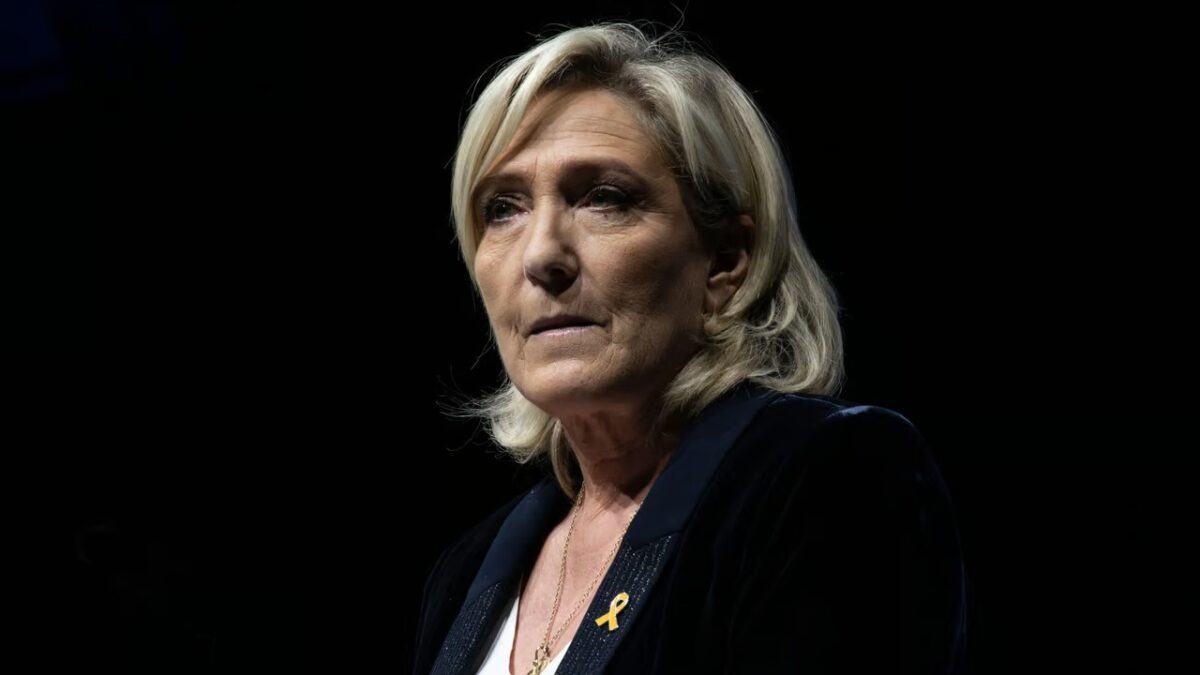In a dramatic turn of events, France’s far-right National Rally faces its most feared scenario as its leader, Marine Le Pen, was sentenced by the Paris Criminal Court on March 31. Le Pen received a five-year ineligibility period and a four-year prison sentence, with two years to be served under electronic monitoring, following a trial on EU funds embezzlement. This ruling, pending an appeal, effectively bars her from running in the 2027 presidential election.
Le Pen, visibly upset, exited the courtroom without comment before the sentences for the 24 other accused were announced. Later, on French news channel TF1, she denounced the decision as a “political decision” and a “fateful day for French democracy,” urging higher courts to expedite the appeal. Jordan Bardella, the 29-year-old President of the National Rally, echoed her sentiments on social media, calling for a “popular and peaceful mobilization” and launching a petition against “the dictatorship of judges.”
The judicial decision has sent shockwaves through the political landscape, potentially reshuffling the balance of power for years to come. Political scientist Benjamin Morel described it as a “huge political earthquake,” with significant implications for the 2027 election. Le Pen, who reached the second round in both the 2017 and 2022 presidential elections, was leading in recent polls for 2027.
The National Rally, traditionally led by the Le Pen family, now faces the prospect of losing its key candidate. Bardella, who succeeded Le Pen as party head in 2022, is seen as a potential alternative. However, his candidacy is met with skepticism, as he lacks the experience and credibility of Le Pen. Mathieu Gallard of Ipsos noted that while Bardella is popular among the young electorate, he struggles to attract the traditional RN base.
The decision has also sparked concern among opposition parties about the reaction of Le Pen’s electorate, which numbers 11 million. This base could see the ruling as a denial of democracy, potentially leading to increased support for other far-right candidates like Eric Zemmour and current Home minister, Bruno Retailleau.
As the political world awaits the appeal trial, Le Pen remains defiant, stating on TF1, “I am combative, I will not let myself be eliminated like this.” Meanwhile, the central bloc and left-wing parties downplay the decision’s impact, focusing instead on the broader fight against the extreme right.
The Paris court’s ruling could have immediate political consequences, with no clear majority emerging. Le Pen, who retains her parliamentary mandate, may consider causing a dissolution or pressing for a censure of Prime Minister François Bayrou’s government. The National Rally’s strategic decisions will now be closely scrutinized in light of this judicial development.
The situation is further complicated by the potential for Le Pen’s supporters to mobilize in response to the ruling. This could lead to increased polarization within French politics, as the far-right seeks to consolidate its base and challenge the status quo. The outcome of the appeal trial will be crucial in determining the future trajectory of the National Rally and its influence on the political landscape.
In the meantime, the party must navigate the challenges posed by Le Pen’s absence and the uncertainty surrounding Bardella’s leadership. The National Rally’s ability to adapt and maintain its momentum will be key to its survival and success in the years to come. As the political world watches closely, the implications of this judicial decision are far-reaching and could shape the course of French politics for decades.
